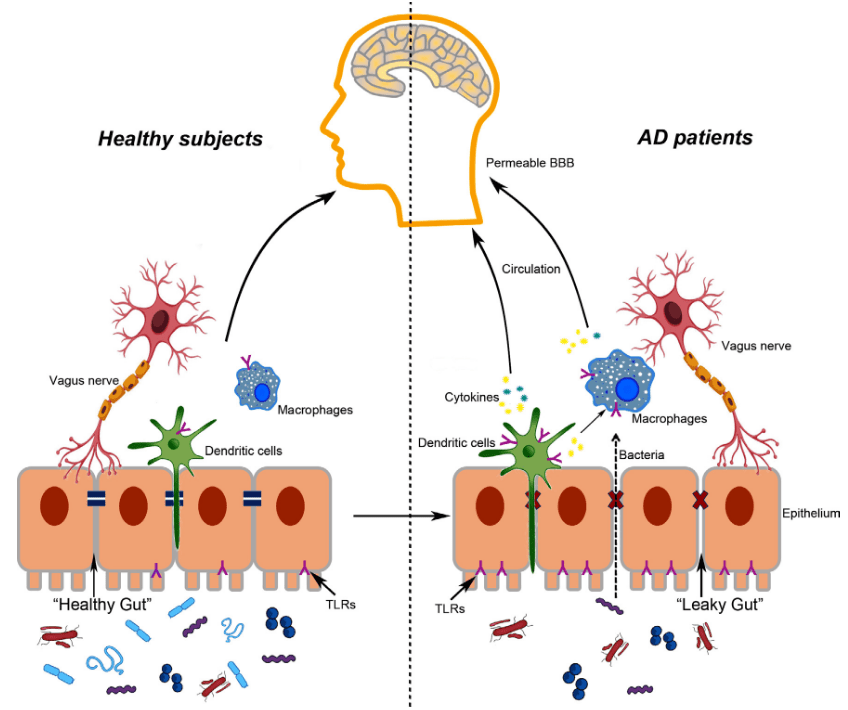Is consumer experience backed by science? What we are looking for is that science provides validation for personal experiences. Seaweed improves health. Scientists know why your blood pressure improves by 15mm Hg. Long term science backs up personal health improvement. However, one cannot make any health claim. Because the regulatory industry was established for artificial drugs and medicines, and functional foods struggle for registration and have to be tested in human and animal clinical trials.
There are some clinical trials on humans. There are thousands of peer reviewed publications on the health improvements in vitro, in animals and for limited studies, humans. Google Search for “seaweed functional food” returns 3.5 million hits.
Is Experience Backed By Science?
Discussion and peer reviewed publications with
- Professor Lindsay Brown University of Southern Queensland (been doing research for 20 years on superfoods)
- Professor Jane Teas Southern Carolina University
- Dr Jan Villasend – Aarhus University Hospital in clinical research arthritis in Denmark
- Dr Monique Mulder Erasmus University Medical Center Rotterdam, The Netherlands.
Our “Pacific Seamoss” red seaweed is 35% sulfated polysaccharide and is pretty indigestible, and passes through the stomach into the intestines. The microbiome get busy on it and composition changes and protects the lining. As well as the extra fibre, and normalisation of the bacteria, some of the other 1000 compounds in the seaweed get absorbed. Some of the compounds have been identified and implicated in the beneficial effects. (eg fucoidan) but there are many unknowns on the mechanism.
Some brown seaweeds (Kelp, Dulce) have an issue with iodine levels too high so you cannot eat the 5+ grams per day of seaweed. The five grams is a daily serve of veges.
Is there a major difference between seaweeds. Possibly if you refine them. But if you have them whole there may not be due to the very complicated interactions.
Metabolic Syndrome Clinical Trial with Humans – 2013
Prof Jane Teas. Did a human double blind clinical trial on 40 overweight volunteers who were already on blood pressure tablets and statins. They all had metabolic syndrome so they all had 2 of those symptoms – Hypertension, weight, high cholesterol and sugar intolerance. They were given 5gm of seaweed, between 4 and 8 gm depending on the treatments.
Significant Outcome. Blood pressure was down 10mm Hg. Patients lost on average 3 kg. There was a reduction in type 2 diabetes. Their cholesterol went down by 2 whole points. The attached paper has more details.
Animal Studies Obesity Fats Rats made Thin 2017
Professor Lindsay Brown from University of Southern Queensland / UQ has been doing functional food research for 15 years on animals. They did do some human trials on Queen Garnet Plums through Univ Victoria with Nutrafruit.com.au. Over his research spanning 2 decades and multiple products, including purple fruits (with anthrocyanin), purple carrots, purple plums, purple corn and also on linseed, and more recently on seaweed with various species the results are the same.
- Improvement of gut microbiome
- Reduction or elimination of fatty liver
- Bone density increase
- Blood pressure reduction
- Weight loss reduction
- Cartilage increase .
What is interesting that essentially fatty liver disease is gone, heart fibrous tissue gone, cholesterol down and good DNA data from the gut microbiome returning to normal.
Prof Brown’s conclusion is that there is no real difference between the whole food and if you try to split out the active compounds. They had done the work for the purple plum and the outcomes were the same for the whole food versus the identified other compounds.
Some of his work has been documented in the media.
Diabetes
Prof Brown’s work with rats over the past 15 years shows all of these conditions improve with the super food. Be it purple carrots, linseed, Purple Garnet Plums, Purple Corn, Achacha (Garcinia humalis) Mangostem, Seaweed. As consumers start to eat seaweed daily then it is clear that consumer experience backed by science, and the challenge is to undertake more science on humans that continue to do work on animal studies.
Fatty Liver and Kidney Disease
In the animal studies Lindsay showed reversal of metabolic syndrome and that fatty liver disappear and kidney function returns.
Breast Cancer – Humans 2013
A short single blind trial by Jane Teas in 2013. Only 16 people, all breast cancer survivors and only for 12 weeks. 4 weeks placebo, 4 weeks 5 gm Unadaria (a brown). The Creatinine levels halved. Creatinine is a marker of inflammation and more importantly implicated in breast cancer. . She was looking to explain why Japanese women have 1/10 breast cancer rates of those in USA
“uPAR is higher among postmenopausal women generally, and for BC patients, it is associated with unfavorable BC prognosis. By lowering uPAR, dietary seaweed may help explain lower BC incidence and mortality among postmenopausal women in Japan. “
There is other animal and invitro studies and it shows that in mice the oestrogen was stripped out. See this blog
Dementia 2019
Prof Brown says animal studies in dementia do not translate well into humans and that 1 drug out of 200 is the track record to date. But Dr Monique Mulder with Sargassum (brown) and others published in Nature in March 2019 that Dietary Sargassum fusiforme improves memory and reduces amyloid plaque load in an Alzheimer’s disease mouse model. The thing seems to be multi-modal in that it provides plant sterols to the brain crossing the blood brain barrier, and stops amyloid plaques and tangles. And reverses it in mice. They are moving from animals to humans in their trials.
Rheumatoid Arthritis and Bowel Inflammation
Dr Jan Villadsen got given some seaweed/rapeseed/fermented mix from FermBiotics.com from his University friend Dr Belinda Bjerre who is a Project Diretor on some of the EU seaweed research programs. The mix was to developed to eliminate use of zinc oxide and antibiotics in pig production. The pig studies show equivalence or better than conventional Zn+antibiotic treatments. Note: zinc is banned in EU animal feed from 2022. A long term rheumatic arthritis (RA) sufferer, Dr Villadsen’s C-Reactive Protein goes to zero in 17 days. Patent. Publications. He and colleagues at Aarhaus are now doing a clinical trial with 200 patients on IBS and RA .
Osteo Athritis
We don’t know exactly which of the 100 different types of arthritis seaweed will work on. There is consistent strong anecdotal evidence. There is in vitro studies. A Nature publication from Prof Xiao and Prof Brown [6] demonstrated when they took the rats from Browns metabolic studies and they identified collagen and connective growth recovery in the rats. This is similar to the osteoarthritis work with extracted fucoidan extracts from brown seaweed.
Conclusion
Functional foods can provide health benefits by reducing the risk of chronic diseases and enhancing the ability to manage chronic diseases, and improving the quality of life. This gives seaweed great potential as a supplement in functional food or for the extraction of compounds.
Our company has a challenge to accelerate the clinical trials and register the benefits to be able to make health claims. Pacific Seamoss is just food. But make your own judgement. No one is stopping you eat food. Even nail growth! We have people where their nails grow more and this is a prime experience backed by science over 11 years ago.
References
[1] Wanyonyi, S; du Preez, R; Brown, L; Paul, N; Panchal, S 2017 Kappaphycus alvarezii as a Food Supplement Prevents Diet-Induced Metabolic Syndrome in Rats. Nutrients (9) 11 DOI:10.3390/nu9111261 (Click for Abstract) (Click to download full paper)
[2] Teas, J et al 2009 Could dietary seaweed reverse the metabolic syndrome? Asia Pac J Clin Nutr 18 (2) 145-157 (Click for Abstract) (Click to download full paper)
[3] Teas, J et al 2013 The consumption of seaweed as a protective factor in the etiology of breast cancer: proof of principle. J Appl Phycol 25 771-779 DOI:10.1007/s10811-012-9931-0 (Click for Abstract) (Click to download full paper)
[4] Bogie, J et al (Including Monique Mulder) 2019 Dietary Sargassum fusiforme improves memory and reduces amyloid plaque load in an Alzheimer’s disease mouse model. Scientific Reports 9 (1) DOI 10.1038/s41598-019-41399-4 (Click for Abstract) (Click to download full paper)
[5] Villasend J; Silkeborg R 2019 Clinical trial: Investigation of macroalgae as a synbiotic adjuvant in chronic inflammatory diseases. Seagriculture19 Belgium presentation (Click to download presentation)
[6] Sekar, S., Shafie, S., Prasadam, I. et al. Saturated fatty acids induce development of both metabolic syndrome and osteoarthritis in rats. Sci Rep 7, 46457 (2017). https://doi.org/10.1038/srep46457
Media
- https://www.abc.net.au/local/archives/landline/content/2016/s4419411.htm
- https://www.abc.net.au/local/archives/landline/content/2015/s4180101.htm
- https://www.abc.net.au/news/2017-07-15/sleeping-giant:-linseeds-health-properties-could/8711970
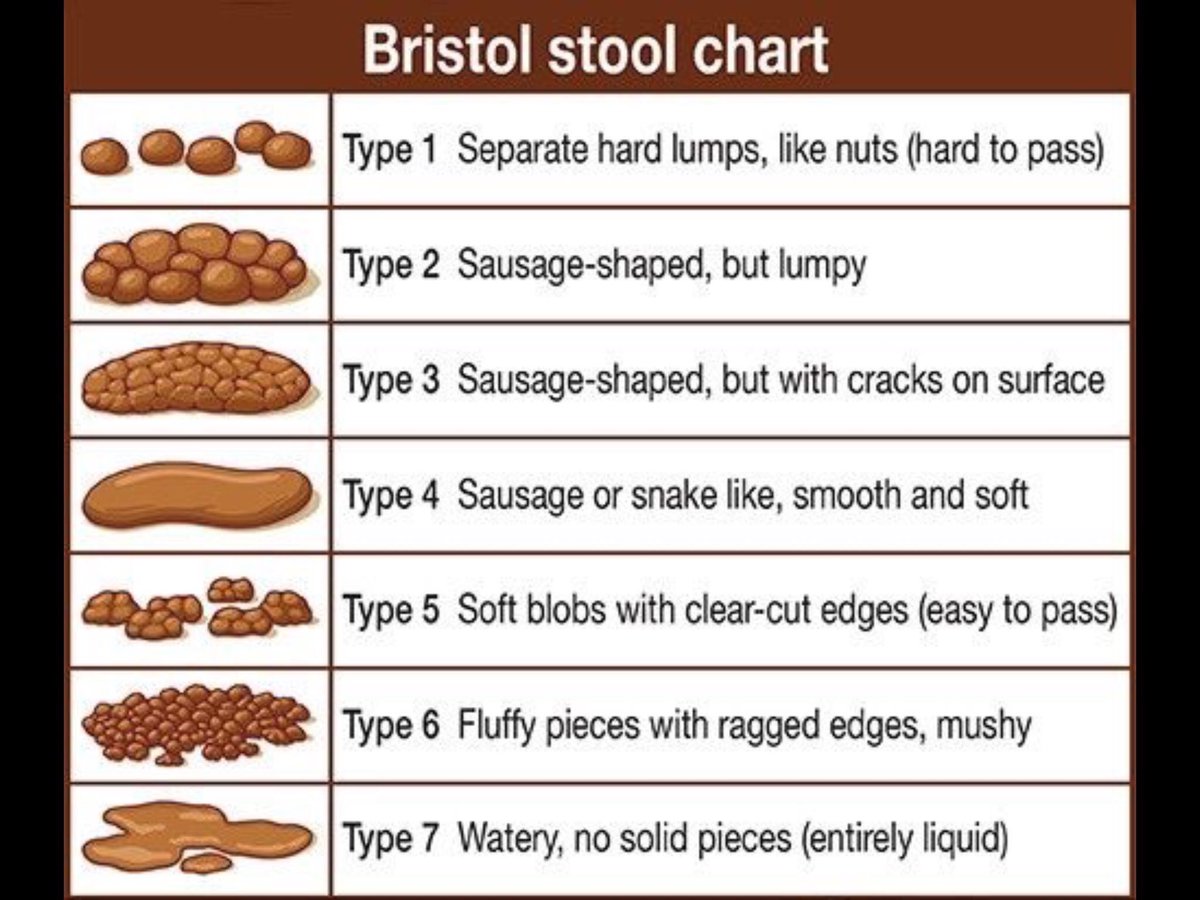



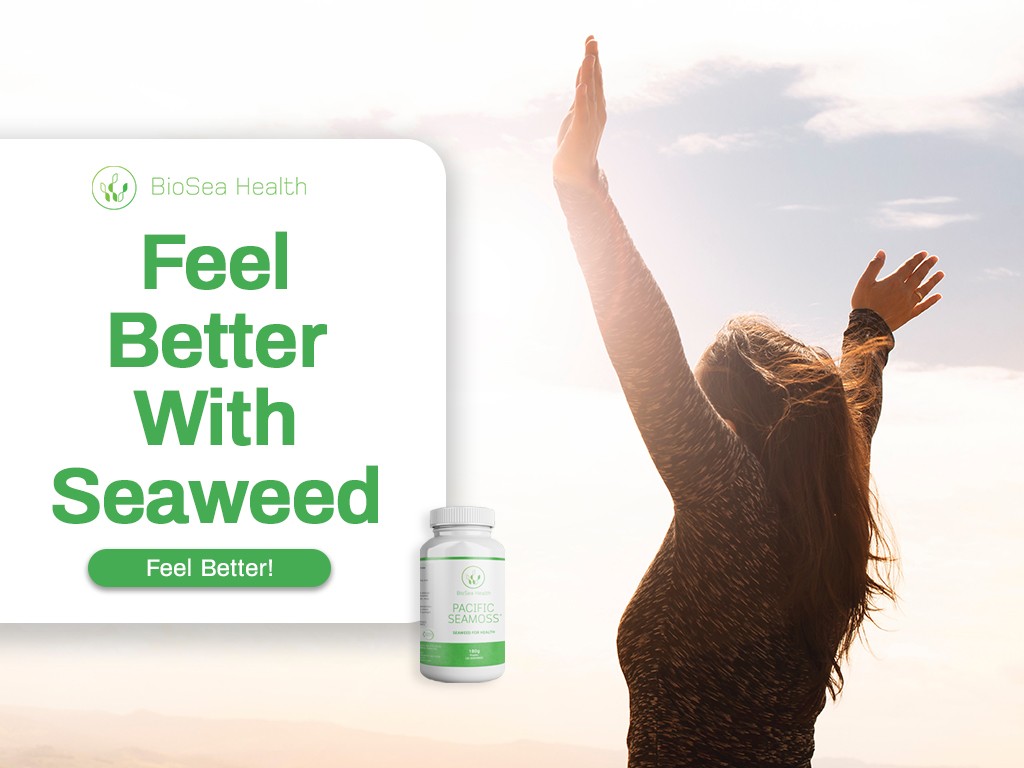
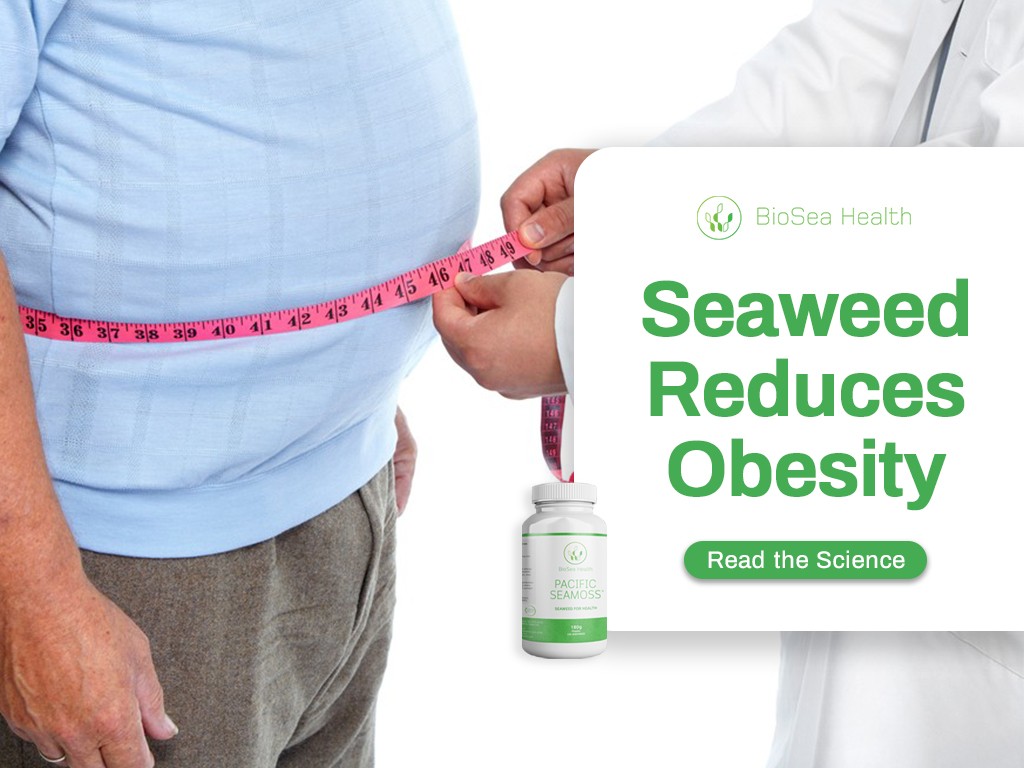
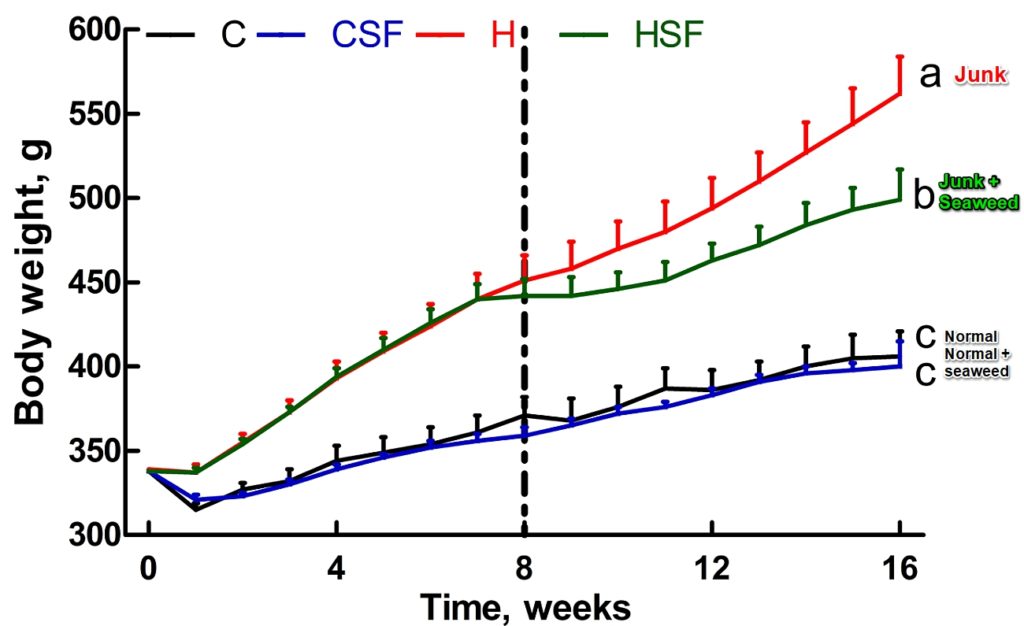
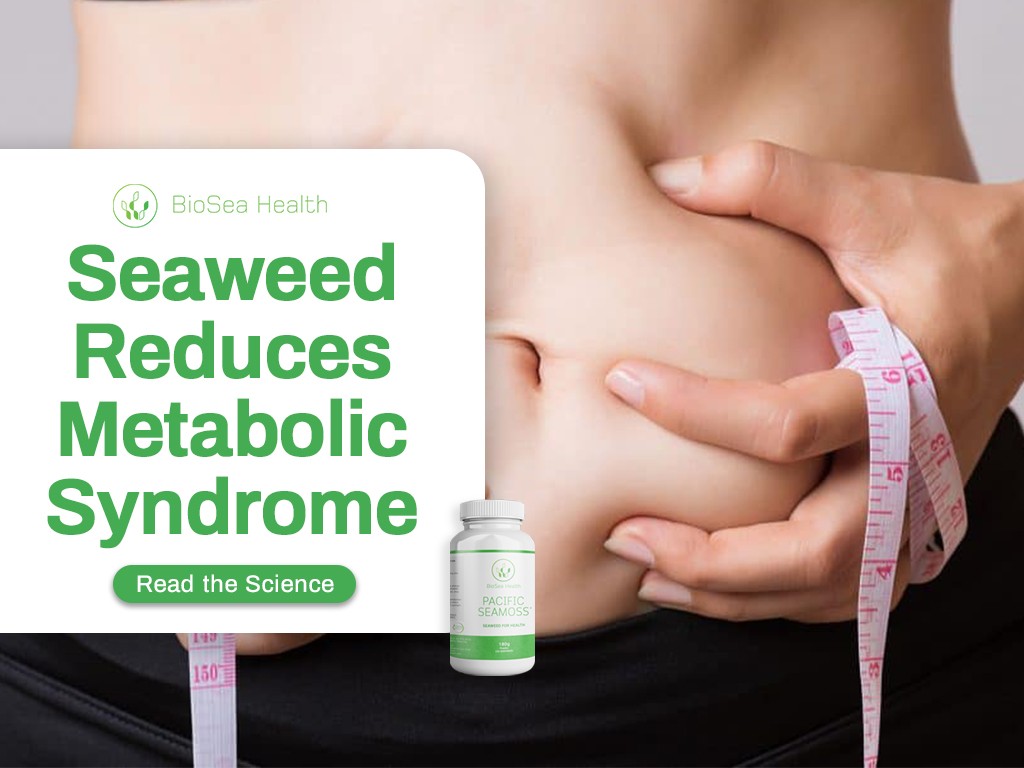




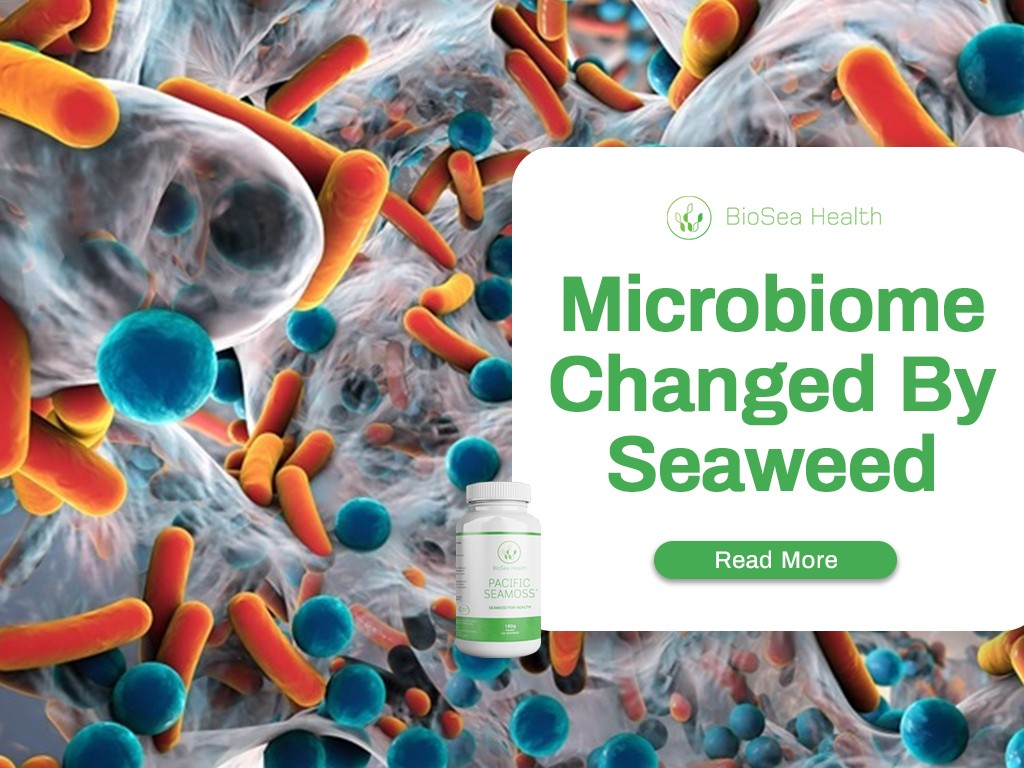
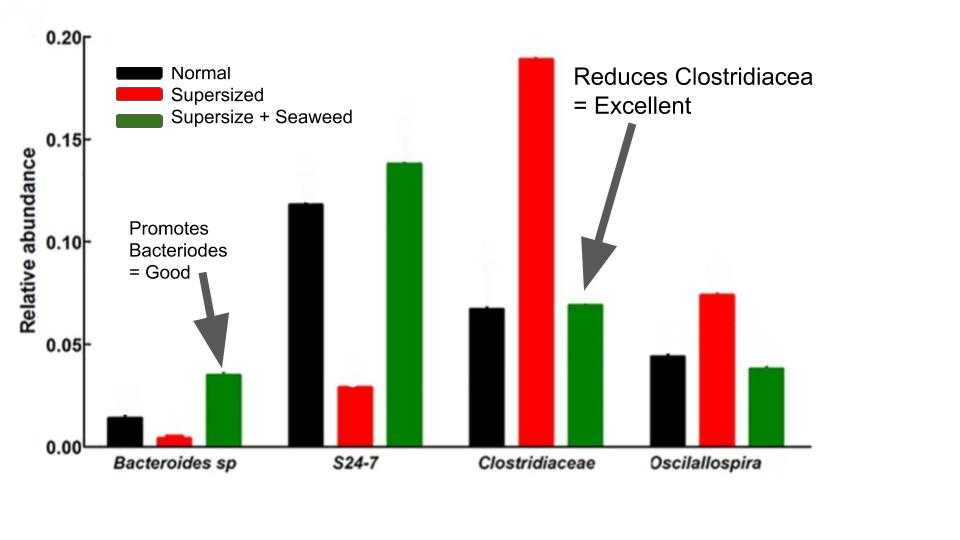
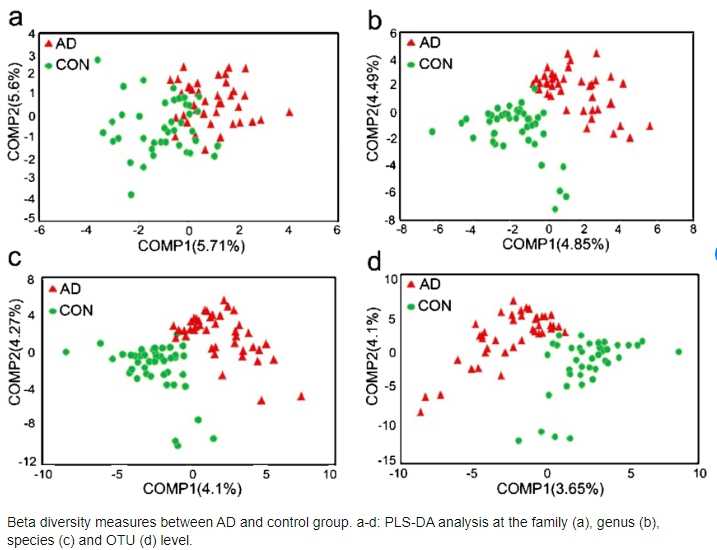
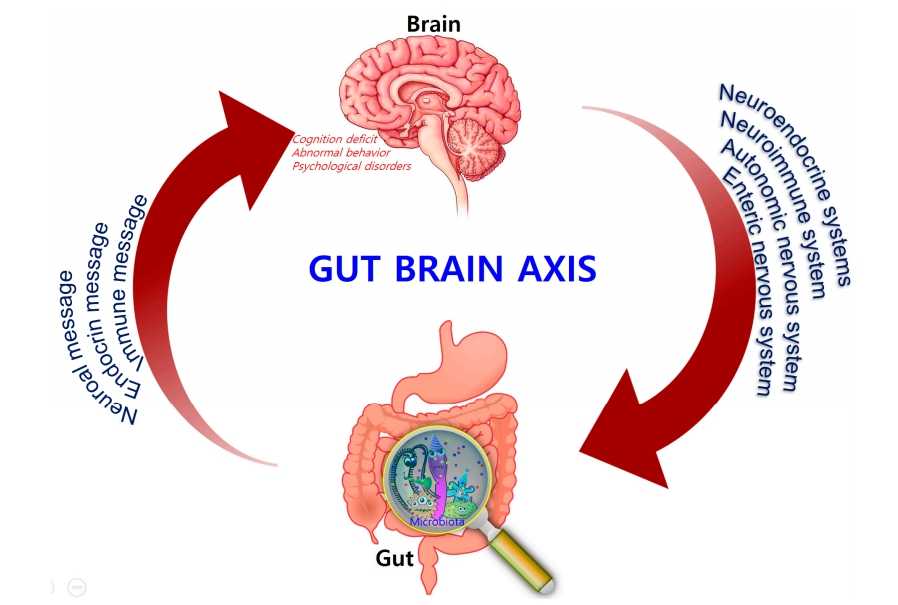 [/vc_column_text][/vc_column][/vc_row][vc_row css_animation=”” row_type=”row” use_row_as_full_screen_section=”no” type=”full_width” angled_section=”no” text_align=”left” background_image_as_pattern=”without_pattern”][vc_column][vc_column_text]
[/vc_column_text][/vc_column][/vc_row][vc_row css_animation=”” row_type=”row” use_row_as_full_screen_section=”no” type=”full_width” angled_section=”no” text_align=”left” background_image_as_pattern=”without_pattern”][vc_column][vc_column_text]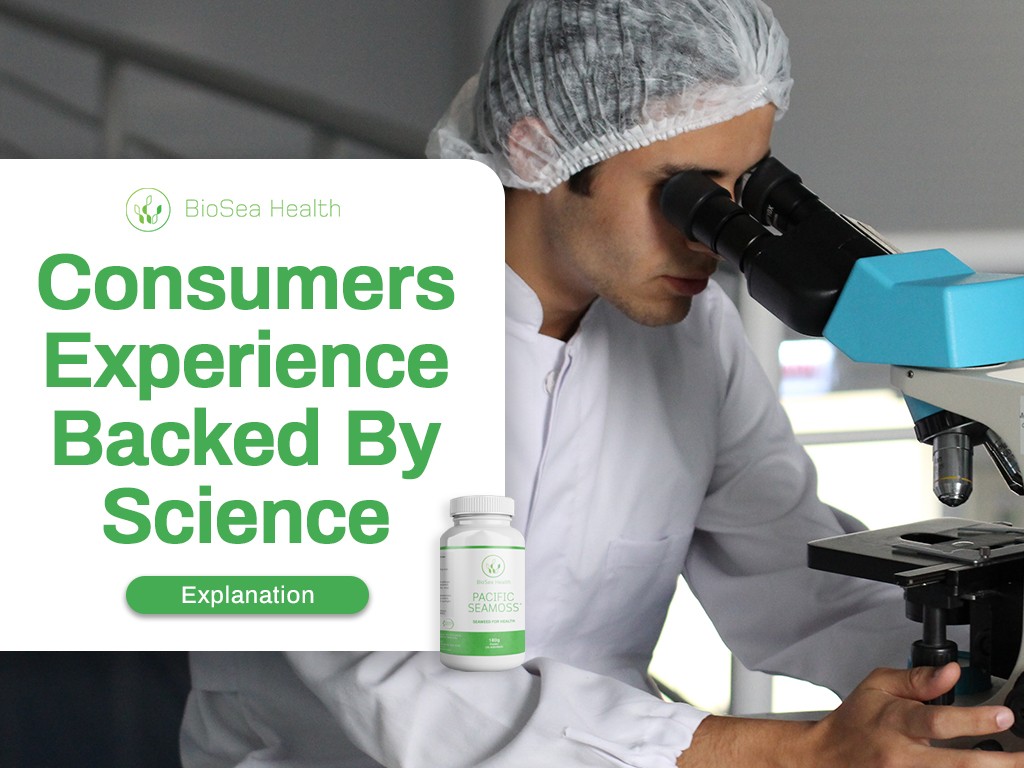
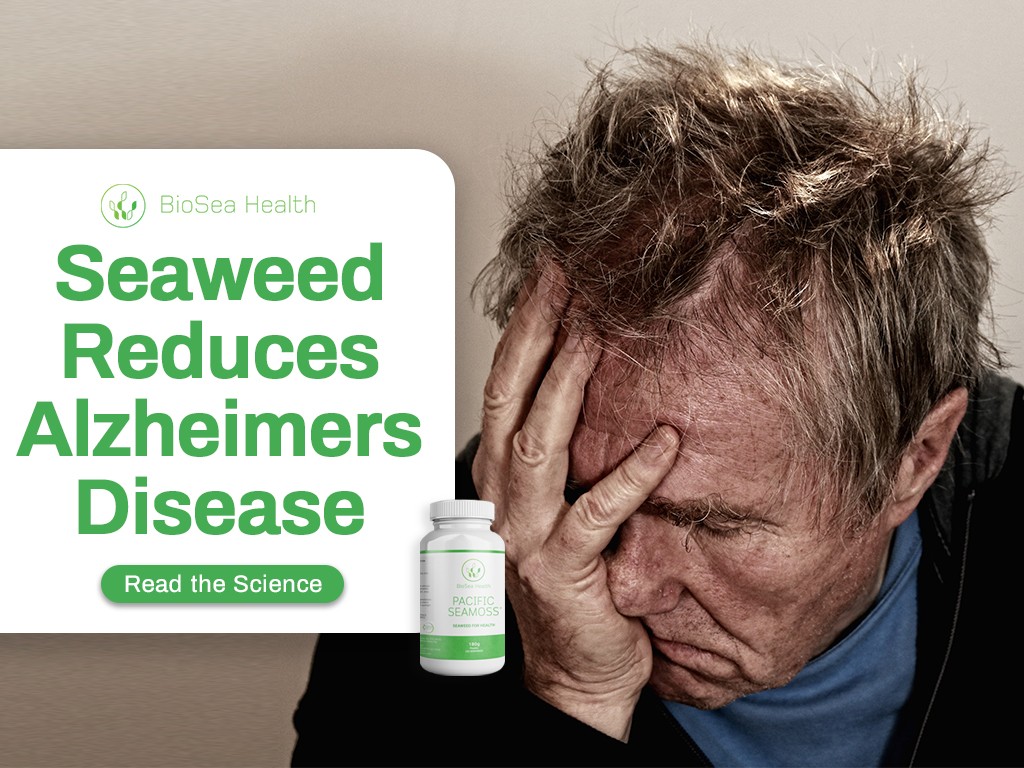
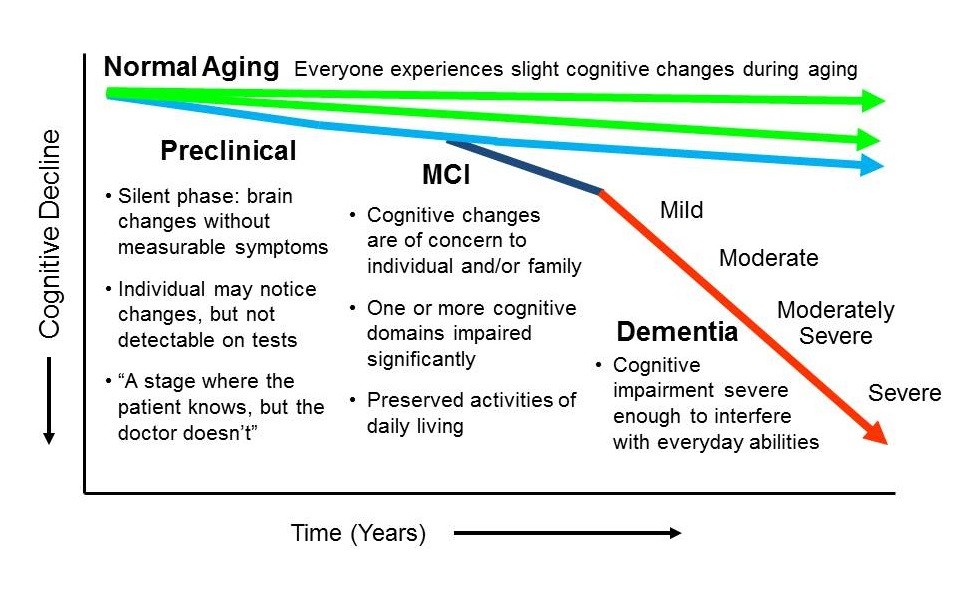
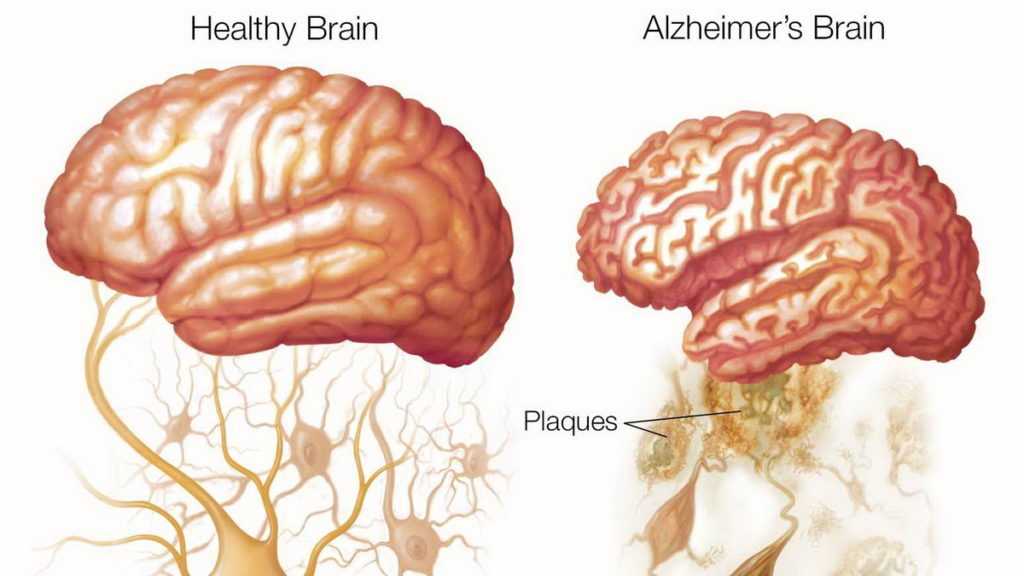
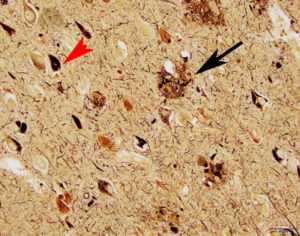
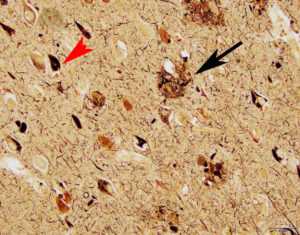
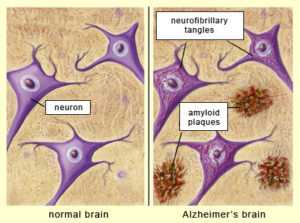
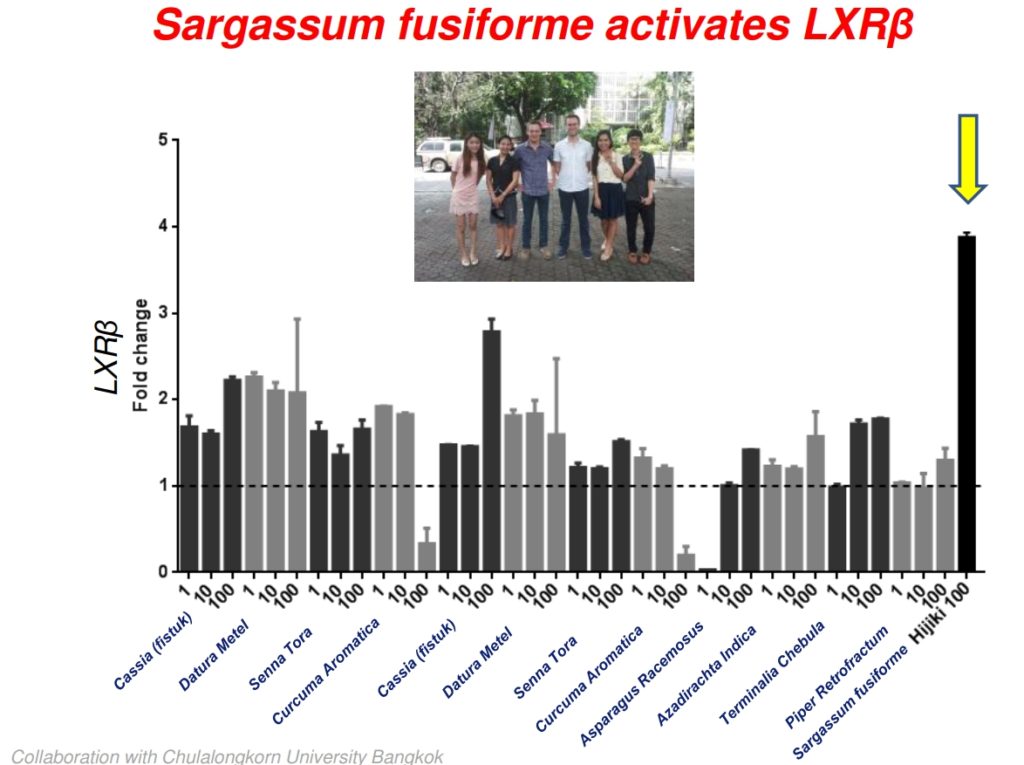
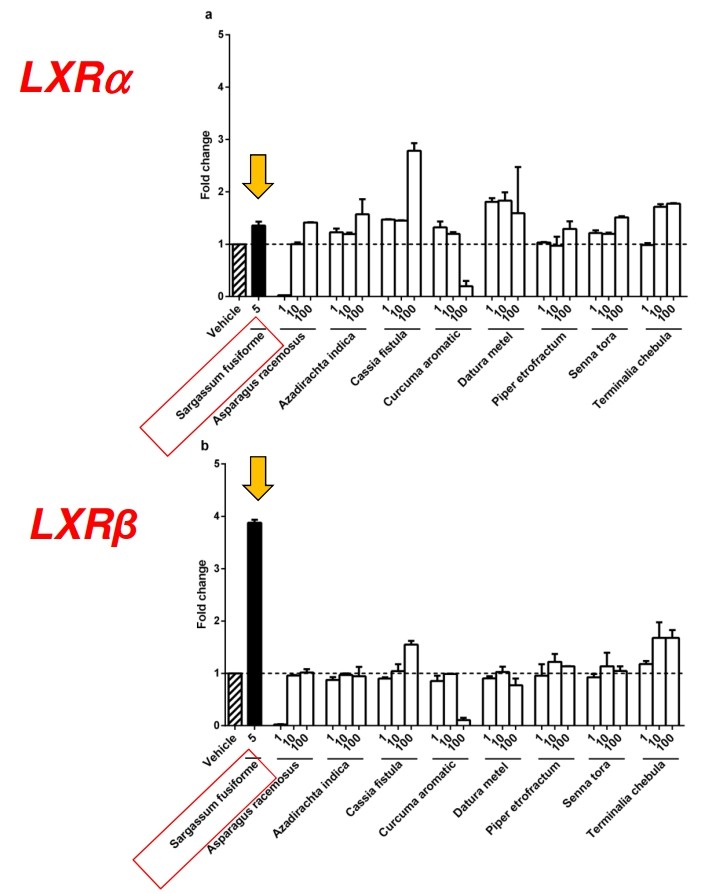
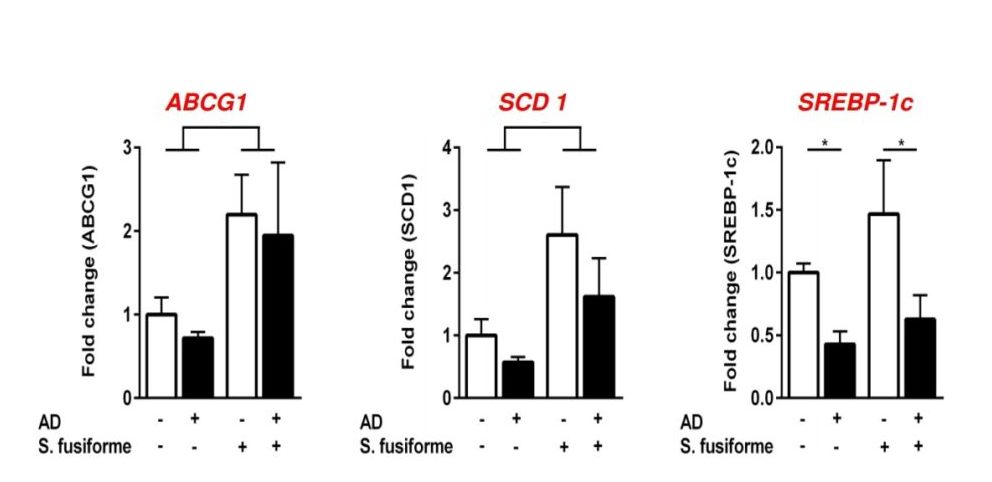 This figure shows that Sargassum actually affected 3 of the genes that regulate the LXR target genes.
This figure shows that Sargassum actually affected 3 of the genes that regulate the LXR target genes.